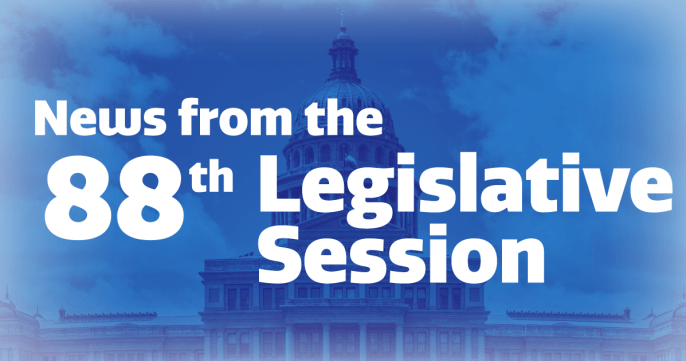
Today, Sept. 1, hundreds of laws passed by the Texas Legislature earlier this year go into effect. While some bills have already gone into effect and other bills have a deferred effective date, the vast majority of bills passed during the 88th legislative session go into effect today.
Many of these bills are consequential to public educators and are very controversial. It is clear already from the botched implementation of many of these bills that public school students and educators — those most affected by these bills — were not properly consulted or considered. It is likewise clear from the litigation surrounding many of these bills that their legality also was not properly considered.
Here are a few of the bills going into effect, as well as a look into the controversies surrounding their implementation. We’ll have more bills to watch — including more court updates — in next week’s Hotline.
HB 3: Armed Guards on Campus
In the wake of the Uvalde tragedy in which 19 students and two teachers were killed by a teenager wielding an assault weapon, many students, educators, and community members advocated for major action on gun violence prevention, especially a prohibition on the sale of assault weapons to those under the age of 21.
Instead, the Legislature provided HB 3 by Rep. Dustin Burrows (R-Lubbock), a costly bill that school districts across the state are struggling to even implement. Hotline readers will remember that we took a deep dive into HB 3 and its components this summer.
While HB 3 included some welcome reforms to school security policy, one of the main provisions of the bill requires an armed school security officer to be placed on every school campus. There are roughly 9,000 campuses in Texas’ more than 1,000 school districts. Hiring armed officers for each of those campuses presents a significant cost to school districts, and districts were provided with relatively insignificant increases in school security funding from the state to cover that cost.
For example, Hutto ISD was forced to hire nine additional school security officers to comply with HB 3 at an estimated cost of $1.38 million for the first year. Under HB 3, Hutto ISD is estimated to receive less than $200,000 in new funds from the state, based on the projected attendance and number of campuses in Hutto ISD.
Other school districts have approved exceptions instead of adhering to the armed guard requirements in HB 3. Hays CISD has filed a “good-cause exception,” stating that it can’t comply with HB 3 due to a “lack of available qualified personnel” in the area to fill the positions. As a part of the approval of the exception, the board has stated it will develop and document an alternative standard.
HB 900: Banning Books from Public School Libraries
Avid readers of the Hotline will be familiar with HB 900 by Rep. Jared Patterson (R-Frisco), as well as the lawsuit and controversies surrounding its planned implementation.
This past Monday, a U.S. district judge heard arguments from lawyers representing several Texas booksellers in the aforementioned lawsuit who asked for an injunction to halt the implementation of HB 900. This Thursday, the court announced that it would grant a temporary injunction, pausing the implementation of HB 900.
These booksellers argue that the rating system required by HB 900 is overly burdensome and expensive for small booksellers and, therefore, would infringe on the vendors’ rights. They also argued HB 900 was forcing speech by requiring the booksellers to rate books with a system they don’t agree with.
According to lawyers for the booksellers, vendors would have to spend hundreds of millions of dollars to review each book they sell and assign it a rating.
SB 763: Allowing Uncertified Chaplains to Act as Counselors
As SB 763 by Sen. Mayes Middleton (R-League City) made its way through the legislative process, many groups came out in opposition to the bill, which would allow uncertified religious chaplains to serve as school counselors. The bill requires local school boards to vote on whether to allow uncertified chaplains to serve as counselors in schools across the district.
Opponents of the bill — including Texas AFT — argue that it infringes on students’ religious freedoms and would effectively deny them access to professionally certified personnel by downgrading the qualifications for counselor positions. An amendment to the bill would have prohibited chaplains from proselytizing, but that amendment was not adopted.
As the bill nears implementation, 100 Texas chaplains joined the chorus of voices in opposition to SB 763. These 100 chaplains signed a letter addressed to school boards around the state condemning the law. The letter contends that the presence of religious chaplains in public schools could bring about conflict with a parent’s choice for religious upbringing for their child and would amount to religious malpractice for the chaplains.